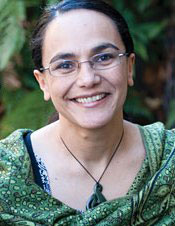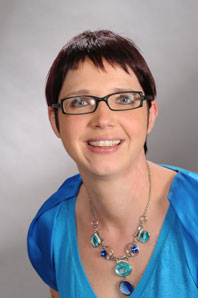Dr Sara Walton
Dr Sara Walton is a Senior Lecturer in the area of business, sustainability and the natural  environment. Her research and teaching expertise includes ecopreneurial businesses in New Zealand, social enterprise and for-benefit organisations, business responses to climate change, understanding natural resource based conflicts and analysing triple bottom line (TBL) company reports and constructions of sustainability. Sara has spent time in Samoa researching the social enterprise ‘Women in Business’ with Oxfam and was PI on a project with AusAid analysing renewable energy projects in the Pacific. She led two streams in the MBIE funded project, Energy Cultures, examining business and energy and entrepreneurs in the transport sector and leads a team of researchers investigating ‘Work Futures;’ developing scenarios for future worlds.
environment. Her research and teaching expertise includes ecopreneurial businesses in New Zealand, social enterprise and for-benefit organisations, business responses to climate change, understanding natural resource based conflicts and analysing triple bottom line (TBL) company reports and constructions of sustainability. Sara has spent time in Samoa researching the social enterprise ‘Women in Business’ with Oxfam and was PI on a project with AusAid analysing renewable energy projects in the Pacific. She led two streams in the MBIE funded project, Energy Cultures, examining business and energy and entrepreneurs in the transport sector and leads a team of researchers investigating ‘Work Futures;’ developing scenarios for future worlds.
At the University level Sara is a member of the Environmental Sustainability Advisory Group and is on the University Steering Committee for Fair Trade and is Academic Leader for the Audacious Student Entrepreneurial Competition. At the departmental level Sara is Director of the Masters of Sustainable Business, currently chairs the Research Committee and is a member of the Department Steering Group. Outside of work Sara is a member of the Dunedin Trade Aid Trust plus recently finished a term on the Board of Trade Aid New Zealand
Dr Diane Ruwhiu
 After several years in purchasing and logistics with the Royal New Zealand Airforce, Diane ventured south to Otago and completed her under-graduate degree and Masters in Commerce as well as a Post Graduate Diploma in Tourism.
After several years in purchasing and logistics with the Royal New Zealand Airforce, Diane ventured south to Otago and completed her under-graduate degree and Masters in Commerce as well as a Post Graduate Diploma in Tourism.
Today Diane teaches strategic operations and supply chain management at under and post-graduate levels. In addition, she also introduces Māori values and practice into other areas, such as entrepreneurship, research methods, business communication, and organisations and sustainability.
Diane’s PhD, ‘The Sleeping Taniwha: Exploring the practical utility of kaupapa Māori in firm performance’, engaged with the premise that improved Māori firm performance and sustainable advantage, are not merely an outcome of economic activity, but are also determinants of the value derived from combinations of distinct Māori socio-cultural resources and capabilities.
Other research questions of specific interest to Diane are:
- What does an Indigenous perspective of practice offer our understanding of organisational practice?
- How do social-cultural resources and capabilities inform business practice?
- What are specific characteristics of clusters or networks based around Indigenous groups?
- What are the socio-cultural dynamics that influence relationships management between general and Indigenous organisations?
- What forms of traditional Māori exchange are evident today and how do they add value?
Dr Paula O’Kane
Paula researches in the broad areas of organisational communication and human resource management. She is currently a member of the Work Futures Otago project which explores what work will look in the next 25 years. In doing so the project takes a systems perspective approach with work as the central unit of analysis. In doing so it explores how the world around us effects the way in which work takes place and how work, in turn, impacts on the world around it.
Selected Work Futures Otago papers of interest:
- Ford, R., Walton, S., Stephenson, J., Rees, D., Scott, M., King, G., Williams, J. & Wooliscroft, B. (2017). Emerging energy transitions: PV uptake beyond subsidies. Technological Forecasting & Social Change. 117: 138-150 [ranked A in ABCD list].
- Zhang, J. & Walton, S. (forthcoming). Eco-innovation and business performance: the moderating effects of environmental orientation and resource commitment in green-oriented SMEs. R&D Management. [ranked A in ABCD list].
- Zahraie, B., Everett, A., Walton, S. & Kirkwood, J (2016). Environmental entrepreneurs facilitating change toward sustainability: case study of the Wine Industry in New Zealand. Small Enterprise Research, 23(1), 39-5 [ranked C in ABCD list].
- Cle-Anne Gabriel, C., Kirkwood, J., Walton, S. & Rose, E.L. (2016). How do developing country constraints affect renewable energy entrepreneurs? Energy for Sustainable Development, 35 (2016), 52-66. [Impact factor 2.379].
- Kirkwood, J., Dyer, K. & Walton, S. (forthcoming). An ecopreneur’s growing resilience after a series of earthquakes – the case of Just Organic Limited. Journal of Enterprising Communities: People and Places in the Global Economy. [ranked C in ABCD list].
- Stephenson, J., Barton, B., Carrington, G., Doering, A., Ford, R., Hopkins, D., Lawson, R., McCarthy, A., Rees, D., Scott, M., Thorsnes, P., Walton, S. & Wooliscroft, B. (2015). The energy cultures framework: Exploring the role of norms, practices and material culture in shaping energy behaviour in New Zealand. Energy Research & Social Science, 31 (7), 117-23. [unranked in ABCD list – new journal].
- Gray, B., Duncan, S., Kirkwood, J. & Walton, S. (2014). Encouraging sustainable entrepreneurship in climate-threatened communities: a Samoa case study. Entrepreneurship and Regional Development: An International Journal, 26 (5-6), 401-430. [ranked A in ABCD list].
- Kirkwood, J., & Walton, S. (2014). How green is green? Ecopreneurs balancing environmental concerns and business goals. Australasian Journal of Environmental Management, 21 (1), 37-51 [ranked A in ABCD list].
- Walton, S., & Kirkwood, J. (2013) Tempered Radicals! Ecopreneurs as change agents for sustainability- an exploratory study. International Journal of Social Entrepreneurship and Innovation, 2(5), 461- 475 [unranked – new journal in an emerging area]
- Walton, S., & Rivers, C. (2011) A missed opportunity: understanding community stakeholders’ perspectives. Australasian Journal of Environmental Management, 18(3),155-169. [ranked A in ABDC list]
- Kirkwood, J., & Walton, S. (2010). What motivates ecopreneurs to start businesses? International Journal of Entrepreneurial Behaviour and Research, 16(3), 204-228. [ranked B in ABDC list, cites 23].
- Kirkwood, J., & Walton, S. (2010). How ecopreneurs’ green values affect their international engagement in Supply Chain Management. Journal of International Entrepreneurship, 8, 200-217. [ranked C in ABDC list].
- Milne, M. J., Tregidga, H., & Walton, S. (2009). Words not actions! The ideological role of sustainable development reporting. Accounting Auditing & Accountability Journal, 22(8), 1211-1257 [ranked A in the ABDC list, impact factor 0.922, cites 225].
- Walton, S. (2007). Site the mine in our backyard! Discursive strategies of community stakeholders in an environmental conflict in New Zealand. Organization & Environment, 20(2), 177-203. [ranked B in the ABDC list, impact factor 1.209, cites 31].
- Milne, M. J., Kearins, K., & Walton, S. (2006). Creating adventures in wonderland: The journey metaphor and environmental sustainability. Organization, 13(6), 801-839.
[ranked A in the ABDC list, impact factor 2.356, cites 285].
List
See the Work Futures Otago Blog


